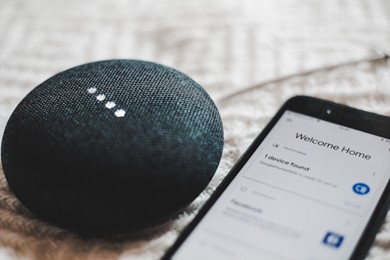Smart home technology has rapidly evolved over the past decade, transforming how we live, work, and interact with our homes. The integration of technology into everyday life has led to a new era of convenience, security, and energy efficiency. Derrick Broadaway explores the latest trends in smart home technology, the potential benefits, and what we can expect for the future.
The Rise of Smart Home Ecosystems
One of the defining features of smart home technology is the emergence of integrated ecosystems. Companies like Google, Amazon, and Apple have created platforms that allow different smart devices to communicate and work together seamlessly. These ecosystems enable users to control everything from lighting and temperature to security systems and appliances from a single interface, often through voice commands or smartphone apps.
With smart home ecosystems, users can create automated routines, such as turning off lights and locking doors at night or setting the thermostat to adjust based on the time of day. The convenience of these systems is driving their adoption, making smart homes more accessible to a broader audience.
Advancements in Home Automation
Automation is at the heart of smart home technology. As the technology continues to advance, we see a growing emphasis on automation that enhances convenience and energy efficiency. For instance, smart thermostats like the Nest Learning Thermostat learn users’ preferences over time and automatically adjust the temperature to optimize comfort and energy savings.
Similarly, smart lighting systems can be programmed to turn on and off based on occupancy or natural light levels. This level of automation not only simplifies everyday tasks but also contributes to reducing energy consumption and utility bills.
Enhanced Home Security and Safety
Home security has always been a significant concern, and smart home technology has revolutionized the way we protect our homes. Modern smart security systems offer a wide range of features, including:
- Smart Cameras: These cameras provide real-time video monitoring and can send alerts to your smartphone if unusual activity is detected. Some models even have facial recognition capabilities.
- Smart Locks: With smart locks, users can lock and unlock doors remotely, grant temporary access to guests, and receive notifications when doors are opened.
- Smart Alarms: These alarms can be integrated with other smart devices to create comprehensive security systems. They can trigger alerts, turn on lights, or even contact emergency services in case of a security breach.
These advancements in smart security provide homeowners with peace of mind and greater control over their safety.
Voice-Activated Assistants
Voice-activated assistants like Amazon Alexa, Google Assistant, and Apple’s Siri have become integral to smart home technology. These virtual assistants allow users to control their smart home devices through simple voice commands. The convenience and hands-free functionality of these assistants have made them increasingly popular, with many smart devices designed to work with them.
In the future, we can expect voice-activated assistants to become even more capable, with improved natural language processing and expanded functionality. This could lead to a more seamless integration of technology into our daily lives.

The Impact of Artificial Intelligence and Machine Learning
Artificial intelligence (AI) and machine learning are playing a significant role in the evolution of smart home technology. These technologies allow smart devices to learn from user behavior, making them more intuitive and adaptable. For example, AI can analyze data from various sensors to predict when you’re likely to be home and adjust the environment accordingly.
Machine learning also enables predictive maintenance, where smart devices can detect potential issues and alert users before they become major problems. This proactive approach to home maintenance could save homeowners time and money.
Conclusion: A Smart Future Ahead
The future of smart home technology looks promising, with continued advancements in automation, security, voice-activated assistants, and AI. As these technologies become more sophisticated and accessible, they have the potential to transform the way we live, making our homes safer, more efficient, and more convenient.
As we embrace this smart future, it’s essential to stay informed about the latest trends and innovations to make the most of the benefits that smart home technology offers. By doing so, we can create homes that truly meet our needs and enhance our quality of life.
